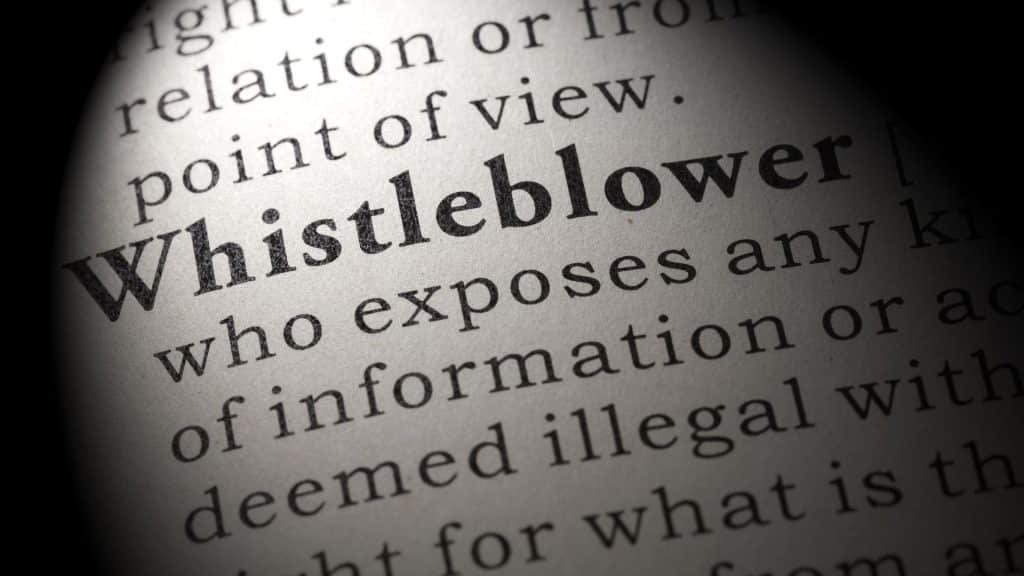Have you ever witnessed workplace misconduct but felt afraid to speak up?
Many employees face this challenging situation on a daily basis. They see fraud, safety violations, or illegal activities, but worry about losing their jobs or facing workplace punishment.
Whistleblower legal protections exist specifically to help employees report wrongdoing without fear of retribution.
These laws shield individuals from employer retaliation while creating safe reporting channels. Federal and state regulations work together to protect those who report illegal practices.
Knowing these protections can make the difference between staying silent and taking action.
In this blog, you’ll learn about key protection laws, safe reporting methods, what remedies exist if retaliation occurs, and how organizations can support ethical reporting.
What Are Whistleblower Legal Protections?
Whistleblower legal protections are federal and state laws that shield employees from employer retaliation when they report illegal activities or misconduct.
These protections cover various forms of wrongdoing, including fraud, safety violations, environmental crimes, and other illegal practices within organizations.
The primary goal is to ensure employees feel supported when stepping forward, knowing that the law backs their right to speak up against misconduct.
These safeguards give employees the right to pursue corrective measures that restore fairness if they experience retaliation.
Which Laws Protect Whistleblowers?

Multiple federal and state laws create a comprehensive network of protections for employees who report wrongdoing in their workplaces.
1. Federal Whistleblower Laws
The Whistleblower Protection Act of 1989 protects federal employees who report government waste, fraud, abuse, or violations of laws and regulations.
This law covers most federal employees and provides robust protections against retaliation, while establishing clear procedures for filing complaints and appeals.
2. Sarbanes-Oxley Act
The Sarbanes-Oxley Act protects employees of publicly traded companies who report securities fraud, shareholder fraud, or violations of SEC regulations.
This law offers robust protection, including job reinstatement, back pay, and compensation for legal fees and other damages suffered due to retaliation.
3. Occupational Safety and Health Act
OSHA protects workers who report workplace safety hazards, refuse unsafe work, or file safety complaints with government agencies.
The law prohibits employers from retaliating against employees who exercise their rights under occupational safety and health regulations.
4. False Claims Act
The False Claims Act encourages the reporting of fraud against the government by offering financial rewards and strong protections against retaliation.
Whistleblowers can receive 15-30% of recovered funds while enjoying protection from employer retaliation and other forms of workplace punishment.
How Can Whistleblowers Report Wrongdoing Safely?
Reporting wrongdoing requires careful planning to protect yourself while ensuring your concerns reach the right authorities effectively and safely.
Safe Reporting Methods:
- Internal Hotlines: Utilize the company’s compliance hotlines or ethics department to report violations, while maintaining detailed records of all communications.
- Government Agencies: File complaints with the relevant federal agencies, such as the SEC, OSHA, EPA, or DOL, depending on the type of violation.
- Legal Counsel: Consult with whistleblower attorneys who specialize in retaliation cases before reporting to authorities.
- Documentation: Keep detailed records of the wrongdoing, your reports, and any responses or changes in workplace treatment.
- Timing Considerations: Report violations promptly, as many laws have strict deadlines for filing complaints and seeking legal protections.
Role of Anonymity and Confidentiality

Anonymity and confidentiality serve as crucial shields protecting whistleblowers from immediate identification and potential retaliation by employers or colleagues.
Certain platforms now utilize secure, encrypted systems that minimize exposure, providing employees with confidence that their reports reach the appropriate authority safely.
However, complete anonymity may limit the effectiveness of investigations, as authorities often require witness testimony or additional information from the reporting employee.
Confidentiality protections prevent disclosure of whistleblower identities except when legally required for investigations, court proceedings, or other official purposes.
What Happens If Retaliation Occurs?
Employer pushback may manifest in various ways, from sudden job changes to subtle workplace hostility, all of which fall under the category of retaliation.
Filing Retaliation Complaints
Employees facing retaliation must file complaints with appropriate agencies within specific timeframes, typically ranging from 30 to 180 days.
Legal Remedies Available
Courts can order job reinstatement, back pay, compensatory damages, attorney fees, and other remedies to make whistleblowers whole again.
Investigation Process
Government agencies investigate retaliation complaints by interviewing witnesses, reviewing documents, and determining whether illegal retaliation occurred against the whistleblower.
How Should Organizations Support Whistleblowers?
Smart organizations create positive environments where employees feel safe reporting violations without fear of negative consequences or workplace retaliation.
Effective compliance programs include clear policies, multiple reporting channels, prompt investigation procedures, and robust anti-retaliation measures to protect employees.
Training programs should educate managers about whistleblower rights, while also emphasizing the importance of maintaining professional relationships with employees who report misconduct.
Regular communication about ethical standards and legal compliance helps build trust while encouraging employees to speak up about potential violations.
Global Variations in Whistleblower Laws
Whistleblower protections vary significantly across countries, with some nations offering stronger protections while others provide minimal legal safeguards.
European Union directives require member states to implement comprehensive whistleblower protection laws covering both public and private sector employees.
| Country | Key Features | Protection Scope |
|---|---|---|
| United States | Multiple federal laws, strong retaliation protections | Federal employees, public companies, and specific industries |
| United Kingdom | Public Interest Disclosure Act, broad coverage | All workers, various types of wrongdoing |
| Canada | Provincial and federal protections, public sector focus | Government employees, and some private sector |
| Australia | Corporate whistleblower protections, recent reforms | Corporate sector, tax matters, government |
Many developing nations are beginning to adopt whistleblower protection laws as international pressure grows for better corporate governance and transparency.
Wrapping It Up
In summary, whistleblower legal protections create a vital safety net for employees who witness illegal activities in their workplaces.
These laws have evolved to address modern challenges while striking a balance between employee rights and organizational needs.
The legal framework continues expanding globally as governments recognize the importance of ethical reporting in maintaining public trust and corporate accountability.
Success in whistleblowing often depends on proper preparation, understanding available resources, and knowing when to seek professional guidance.
Although challenges exist, evolving protections and legal remedies continue to strengthen employee confidence in reporting wrongdoing.
What steps will you take to familiarize yourself with whistleblower protections in your industry or workplace?






































